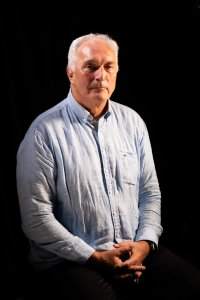Success is the sum of small but right decisions

Download image
Igor Prieložný was born on February 25, 1957 in Trnava. Mother Soňa (1936) was a dental nurse by profession, and father Dušan (1930) was a prominent Czechoslovak volleyball player, international referee and official. He started attending elementary school in 1963 in Bratislava. From 1972 he studied at Juraj Hronec Grammar school in Bratislava. Already as a student, he played in the high school championships of Czechoslovakia and represented the Czechoslovakia in many junior international tournaments. In 1975, he played at his first European Championship in West Germany. After graduating in 1976, he continued his studies at the Faculty of Physical Education and Sports in Bratislava. In 1977, he played at the European Championship in Finland with a short time gap for both national teams of Czechoslovakia – junior and men’s. After graduation, he joined the one-year military attendance service. After returning from the military, he got a job as an assistant - volleyball specialist at the FTVŠ in Bratislava. In 1980 he participated in the Olympic Games in Moscow and in 1982 in the World Cup in Argentina. In 1984, he traveled with the Czechoslovakian team to the USA for preparatory tournaments for the Olympic Games. At the European Championship 1985, they took second place with the national team. In 1985, he won a bronze medal with the Czechoslovak team at the prestigious international World Cup tournament. Due to health problems, he had to end his volleyball career at the age of thirty. Between 1987 and 1996 he worked as a coach in Germany. However, a year after returning to Slovakia, he trained again mainly abroad - first in Vienna and later in Switzerland. From 2003, he worked as a coach for eight years in Poland, from 2011 for the following two years in Dubai. After his return, he led the women’s beach volleyball team in Vienna for two years in preparation for the 2016 Winter Olympics. In Slovakia, he worked in the Slávia UK Bratislava women’s club, and in Germany he trained volleyball players who successfully advanced to the 2020 Summer Olympics.

